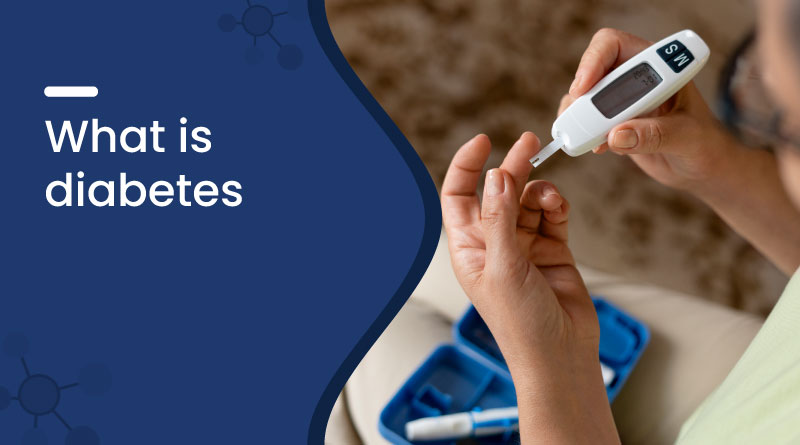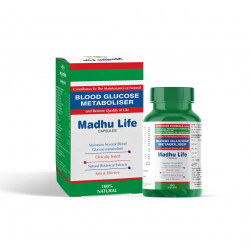What is Diabetes


What is Diabetes?
Diabetes is a health condition where your body either doesn't make enough insulin or can't use it properly. Insulin is a hormone that helps move sugar (glucose) from your blood into your body’s cells for energy. When this process doesn't work well, sugar stays in your blood and leads to high blood sugar levels.
What are the Symptoms of Diabetes?
Diabetes symptoms can develop slowly and are often ignored in the early stages. Here are the most common signs:
- Feeling very thirsty often
- Frequent urination, especially at night
- Feeling very hungry, even after eating
- Unexplained weight loss
- Fatigue and weakness
- Blurry vision
- Slow healing of wounds
- Numbness or tingling in hands and feet
- Dry skin and frequent infections
Types of Diabetes
1. Type 1 Diabetes
This is an autoimmune condition where the body attacks its own insulin-producing cells. People with Type 1 diabetes need to take insulin daily. It usually develops in children or young adults.
2. Type 2 Diabetes
This is the most common type. The body makes insulin but doesn’t use it properly. It usually affects adults, but is now seen in younger people due to unhealthy lifestyles. Diet, exercise, and medicines like Metformin or Glimepiride can help manage it.
3. Gestational Diabetes
This occurs during pregnancy and usually goes away after delivery. However, it increases the risk of developing Type 2 diabetes later in life.
What Happens When Blood Sugar Stays High?
If blood sugar stays high for a long time, it can cause serious health problems. Here’s how high blood sugar affects the body:
- Eyes: Can lead to blurry vision and even blindness (diabetic retinopathy)
- Kidneys: May cause kidney damage or failure
- Heart: Increases risk of heart attack, stroke, and high blood pressure
- Nerves: Causes numbness or pain in hands and feet (diabetic neuropathy)
- Skin: Leads to dryness, slow healing of wounds, and infections
- Mouth: Raises risk of gum disease and tooth loss
How to Control Diabetes Naturally?
In early stages or along with medicine, lifestyle changes help manage diabetes:
- Eat a balanced diet with whole grains, veggies, and less sugar
- Exercise at least 30 minutes a day
- Monitor your blood sugar regularly
- Maintain a healthy weight
- Avoid smoking and limit alcohol
- Take medicines or insulin as prescribed by your doctor
Frequently Asked Questions
Q. Can diabetes be cured?
A. No, but it can be controlled with medicine, diet, and exercise.
Q. Is Type 2 diabetes reversible?
A. In some cases, early Type 2 diabetes can be reversed with weight loss, diet, and regular physical activity.
Q. Can I use generic medicines for diabetes?
A. Yes, generic medicines like Metformin, Teneligliptin, or Glimepiride are safe and affordable.
Q. When should I check my blood sugar?
A. Diabetics should check fasting, post-meal, and random blood sugar as advised by a doctor.
Final Words
Diabetes is a lifelong condition, but with the right care, it can be managed easily. The key is early detection, healthy habits, regular checkups, and proper medication. Don’t ignore the symptoms — take charge of your health today.
Asana (Pterocarpus Marsupium) 70mg, Kara...









 Added!
Added!